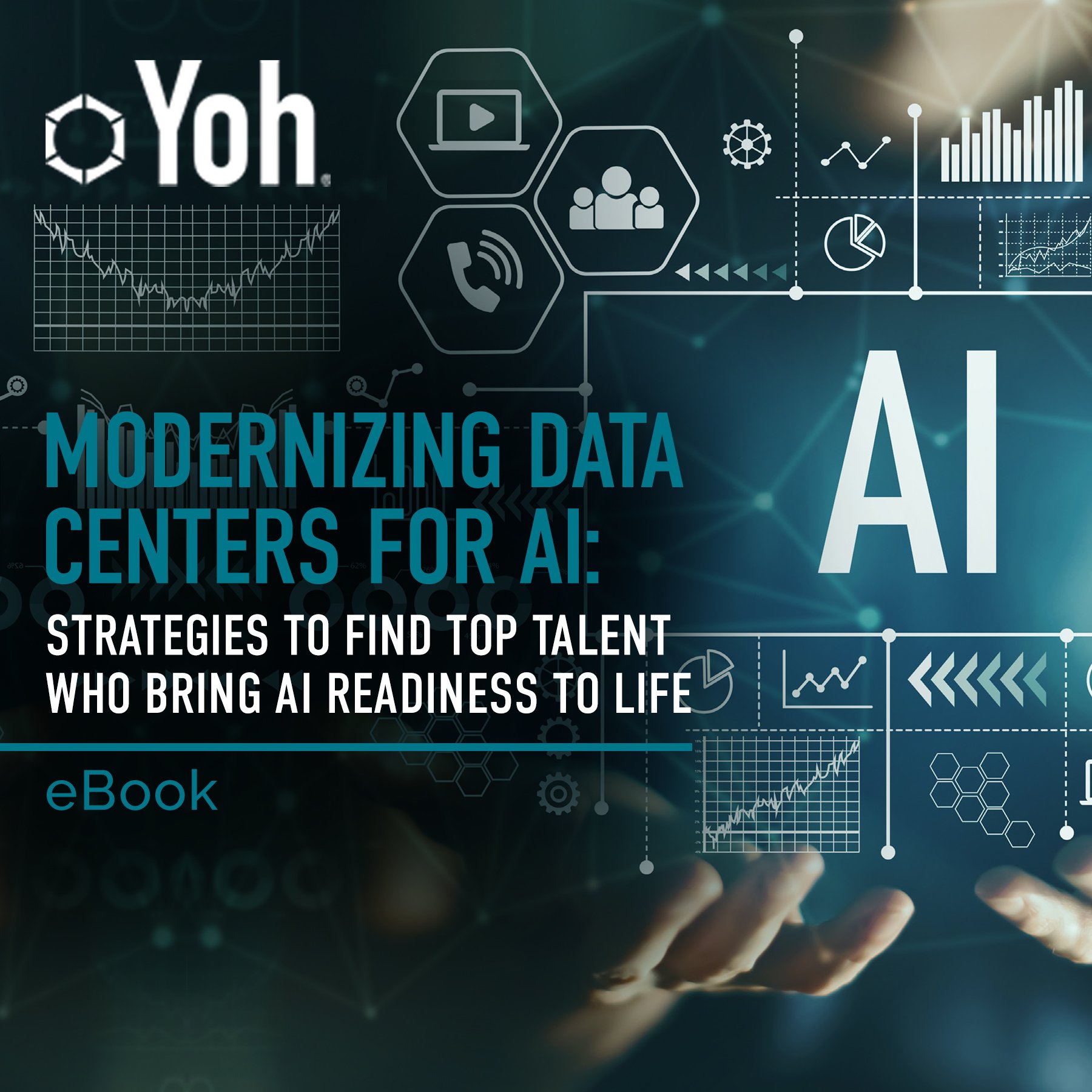AI & ML
Driving innovation with cutting-edge artificial intelligence and machine learning talent solutions.
YOUR ANSWER FOR AI & ML
sUBJECT-MATTER EXPERTS
Pioneer New Solutions with our AI and ML talent!
Staying at the forefront of technological innovation demands AI and ML subject matter experts (SMEs). Yoh’s cutting-edge talent solutions help companies stay competitive in a rapidly changing tech landscape. Through a consultative approach, we create customized solutions for our clients' AI and ML needs, offering SMEs who enhance efficiency, productivity, and innovation across industries. When you need AI and ML support, trust Yoh!
AREAS OF AI & ML EXPERTISE
ARTIFICIAL INTELLIGENCE
- Artificial Intelligence – Engineer/Researcher/Security
- Machine Learning
- Large Language Modeling (LLM) and Security
- Natural Language Processing (NLP)
- Deep Learning Models
- Data Science & Data Strategist
- Research Sciences
- Head of ML Engineering
- AI Strategy & Solutions Design
- AI Ethics, Compliance & Governance
MACHINE LEARNING
- Deep Learning Engineer
- Natural Language Processing (NLP) Engineer
- Computer Vision Engineer
- Neural Network Engineer
- ML Ops Engineer
ARTIFICIAL INTELLIGENCE ENGINEERING
- LLM/RAG Engineers
- Prompt Engineers
- Language Model Product Managers
- Research and Data Scientist
AI-BASED DEVELOPMENT
- Cuda / OpenCL / OpenAI / Triton Developer
- Mojo Developer
- Vector and Graph Engineers
WHY YOH INFORMATION TECHNOLOGY?
A CONSULTATIVE APPROACH
Implementing a consultative approach with each and every client, Yoh dedicates time to understand your project challenges, timelines, hiring goals, skill requirements, and company culture. This approach ensures that we tailor a fully customized solution that perfectly fits your needs.
DEEP SUBJECT-MATTER EXPERTISE
Yoh’s teams of seasoned industry veterans are deeply rooted in the IT sector and known for both their market knowledge and the caliber of their networks. Our SMEs will effectively shape your talent strategies and delivery within the ever-evolving tech landscape.
Workforce solutions that flex with your business.
Recruiting Services
Need to scale fast with the right talent? Yoh connects you to specialized professionals who hit the ground running, whether you need short-term support, permanent hires, or full project teams.
Explore Recruiting Services >
Professional Consulting Services
Managing consultant-based projects is complex. We simplify it. Yoh assembles and oversees expert technology teams to keep your initiatives on track—from onboarding to day-to-day delivery.
Explore IT Consulting Services >

/Specialty%20Practices%20Stock/IT%20and%20Engineering%20Stock/AI%20Client%20Snapshot%20-%20Square.jpg)



